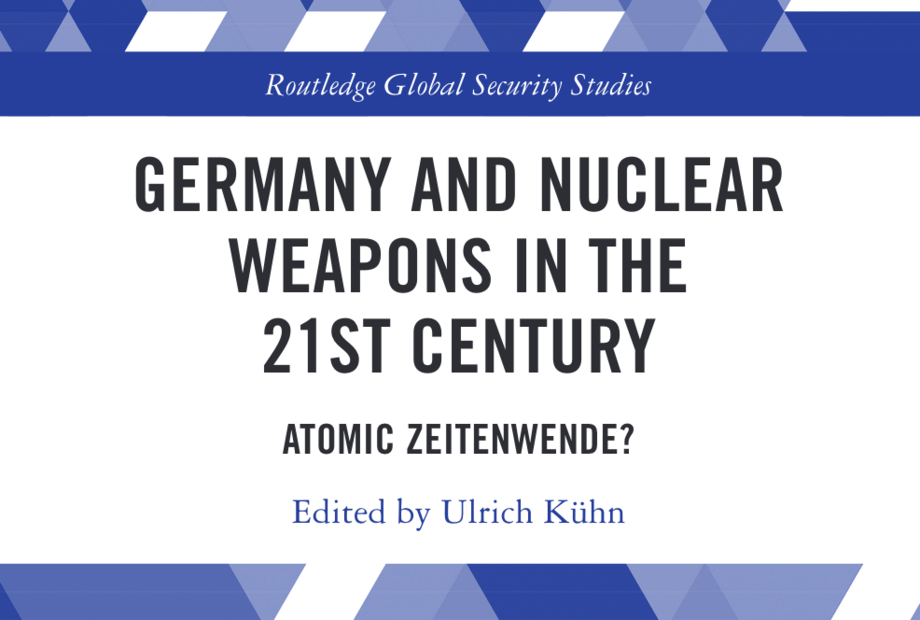This book, edited by Dr Ulrich Kühn, is the first scholarly book to take a comprehensive look at Germany’s nuclear weapons policies in the 21st century. German foreign and security policy is facing a profound reorientation. Great power competition between the United States and both a revanchist Russia and a rising China, the return of war and nuclear threats to Europe, and the emergence of new technologies all force Germany to adapt. German policymakers and scholars increasingly speak of a pivotal Zeitenwende, an epochal turning point in history. How does Germany adapt its nuclear policies to these changing conditions?
The volume brings together internationally renowned nuclear scholars and policy analysts from Germany and abroad. Focussing on German nuclear deterrence, arms control and disarmament as well as nonproliferation policies, the contributors assess how German leaders have navigated continuity and change, domestically and abroad. The volume concludes that Germany remains bound by dependence on the United States and its own conservatism. Within these parameters, German leaders have adapted slowly to change and continue to balance seemingly contradictory deterrence and disarmament goals.
This book will be of much interest to students of nuclear proliferation, security studies, German politics and International Relations, as well as policymakers.
The book has been published under an open access license and can be read and downloaded here.



![[Translate to English:]](/file/_processed_/9/4/csm_Research-Report_015_EN_Titel_800x1200px_52812f58ca.jpg)

